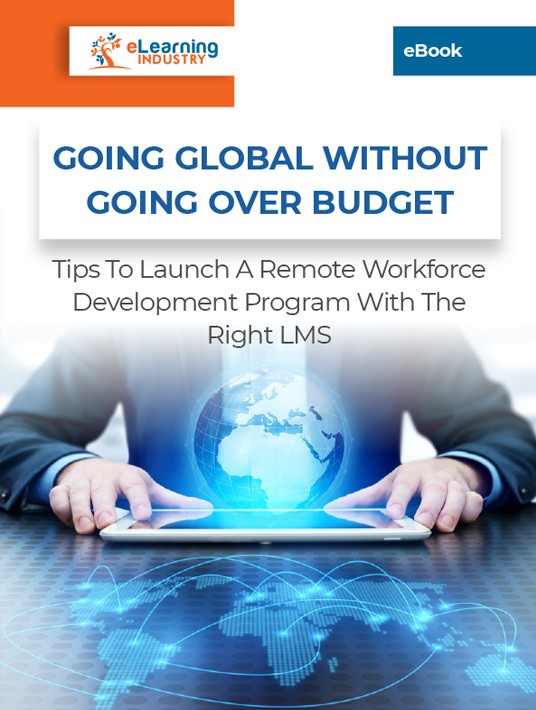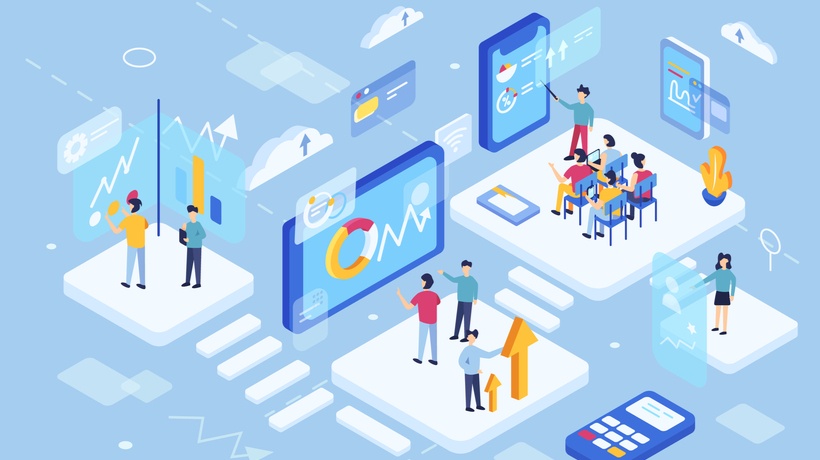Why You Should Use An LMS For Workforce Development
There are 2 main ways you can enhance the skill-set of your organization. One, you can poach talent, but that may cause tension when new hires are given seniority. Not to mention, breed ill-will within the industry and possibly even tarnish your brand image. Two, you could develop skills in-house. LMS does this far better than canned software because it provides broader customization options. Also, your LMS could work out being cheaper, because you can use the same system to design countless courses. And it performs a variety of non-training functions too, so it’s good value. Why else do you need LMS as a workforce online training tool?

1. Access To Personalized Online Training Resources
How goes the typical work-place appraisal? HR might sit with a team member and point out their flaws. They might use these 'faults' as a basis to deny said employee’s request for a raise. It’s why we dread these 'staff improvement' sessions. A more constructive approach would be to focus on the employees’ strengths. Ask them what skill-sets they’d like to enhance. You can also suggest growth areas for them, and mention online training courses that could help. Then, work with this employee to chart an online training path. Having a quality workforce training LMS will help you design the exact online training resources they need to bridge the skill gaps you’ve jointly identified. Instead of making employees feel singled-out or judged.
2. eLearning Feedback Tools That Actually Work
If an organization is brave enough, they could turn appraisal into a 2-way evaluation. Ask team members to point out things about their work (place) they dislike. This helps you raise the bar for your entire firm. But staffers will naturally feel awkward criticizing their employer. They’re scared it’ll be used against them. So instead, you could use your LMS to program a private eLearning feedback portal. Give employees the option of browsing incognito. If their assessment of the boss can be anonymous, they’ll be more open and honest. So, their eLearning feedback is more likely to be accurate and usable. After all, workforce development includes the firm itself.
3. Customized Analytics For Better Results
Canned software has certain built-in benefits. Including the ability to generate reports. Remember though, these types of software are generic. They can be used by any organization in any industry, so their analytics are helpful but broad. When you apply LMS, the metrics you gather are way more specific. Some workforce development LMS platforms are involved in more than just online training. You can use it to gather leads, chart sales progress, manage customer complaints, and take inventory. Especially if it’s integrated with your business software suite. So, you can draw data from all these varying areas of your operations and produce detailed reports. You could, for example, assess your team individually. You can see the exact point where the sale stalled, so you know what portion of the sales path requires boosting.
4. Tailoring Based On Lifestyle
When you buy pre-packaged workforce online training solutions, it aims to solve common workplace problems. Software developers begin by identifying the top 10 (or top 100) on-the-job challenges. Then they create an online training course to solve them. But when you invest in LMS, your problem-solving becomes far more intimate. It’s no longer generic. You can tailor online training courses and processes that direct your staff directly. For example, you know how many of your staff members have toddlers. So LMS could develop the type of animated online training video you can watch at home. Or you know that they need bite-size online training resources that are accessible remotely to bridge the gaps before a sales call.
5. Retain Your Top Talent
A workforce development LMS is not just a tool to train your team. But a perk that helps you retain your top talent. Employees appreciate the fact that your organization is offering ongoing support. They can access the LMS whenever they’re in a bind to upskill, bridge gaps, and improve performance. As such, they’re more satisfied and are more likely to stay with your organization. Which also means that you don’t have to pay to train their replacements.
6. Reduce On-The-Job Mistakes
Workplace mistakes can be costly. Especially if they cause injury or violate the law. However, a workforce training LMS reduces these errors by facilitating the real-world experience and providing anytime, anywhere online training tools. Employees can train on their own to remedy performance issues and overcome tricky tasks. As a result, they learn from their mistakes during simulations and branching scenarios. Instead of when they’re on the sales floor dealing with a customer. Or in the warehouse working with heavy equipment that poses serious safety risks.
Part of the reason employees don’t undertake career development is time. Or rather, its distinct lack. Between their 40-hour work-weeks and their 24/7 family duties, it can be hard to catch a break. Online training helps them squeeze in a little career advancement. Maybe they could catch an online training clip as they make breakfast. Or watch online training videos while they wait in the car park. Whatever the case, LMS makes it easier to design tailored online training courses for your staff. You can identify skill gaps and craft an individual online training path for each employee. Offer them—anonymous—eLearning feedback options so they can really tell you what they need. Drill down your corporate analytics and base their online training around their lifestyle. It’s better for everyone.
Do you want to discover more about the benefits a new LMS can bring to your business? Download the eBook Going Global Without Going Over Budget: Tips To Launch A Remote Workforce Development Program With The Right LMS, explore ways to bridge the gaps and enhance your business strategy.









